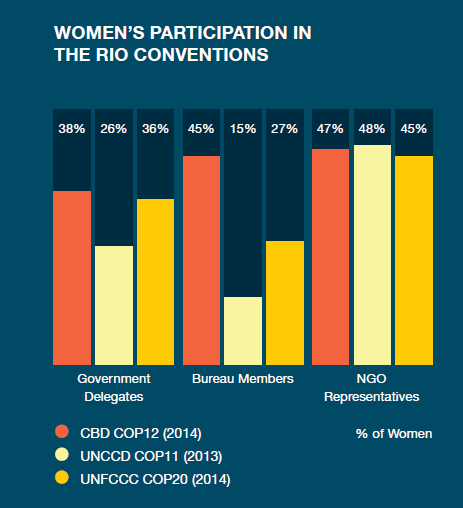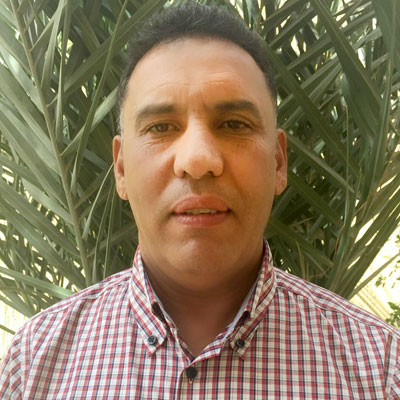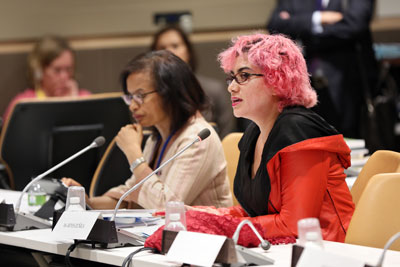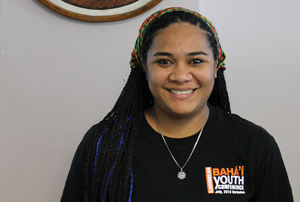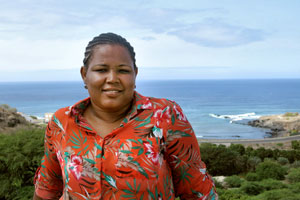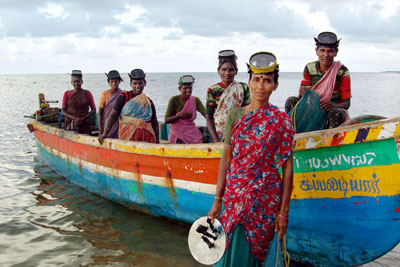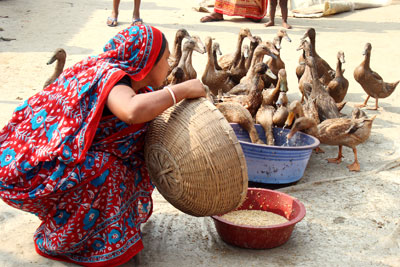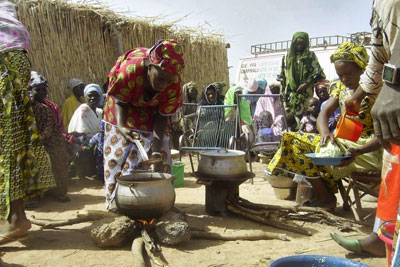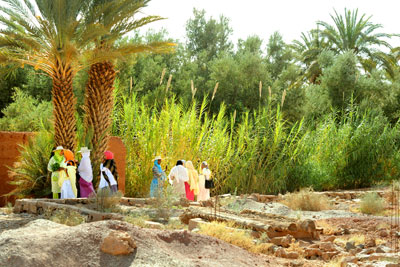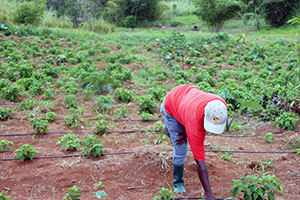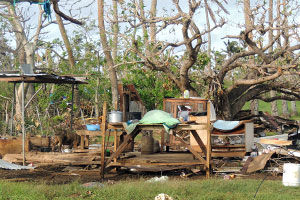Gender equality, women’s empowerment and climate change
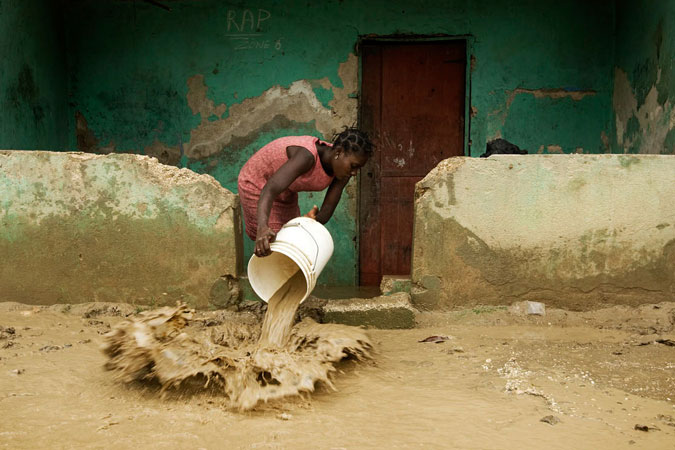
Events |News |Statements |Interviews | Photos | Stories |Join the conversation
The Issue
A changing climate poses risks for all of humanity. However, for women and girls in particular, many of whom spend a disproportionate amount of time searching for food, fuel and water, or struggling to grow crops the differentiated impact is tremendous. In fact, when disasters strike, women are more likely than men to die, such as the case of the 2004 Asian tsunami were 70 per cent of the fatalities were women [1].
Women and girls are also key leaders and agents of change. They play a critical, but often unrecognized, role in climate action and the management of natural resources. In most developing countries, for example, women are the primary household energy managers and can also be powerful agents of change in the transition to sustainable energy. Women entrepreneurs have enormous potential to create distribution and service networks in rural areas, helping to lower the cost and increase access to sustainable energy. As decision-makers, they have offered innovative solutions to respond to climate change impacts and to making development more sustainable overall.
On the heels of the UN’s adoption of the new 2030 Agenda for Sustainable Development in September, which includes a specific goal on climate change (SDG 13), UN Women takes a detailed look at women’s impact and role as change-makers for each of the SDGs.
But the gender dimensions and the key role of women in climate change action has not always been recognized in international fora. The twenty-first session of the Conference of the Parties (COP)—to take place from 30 November to 11 December 2015, in Paris, France—is a significant and much-anticipated global gathering where leaders from around the world are expected to adopt a legally binding and universal climate agreement to be implemented by governments as of 2020. UN Women has been closely following the negotiations and advocated strongly for the final agreement to recognize gender equality and women’s empowerment. Read UN Women’s position.
Events
UN Women is co-organizing and will be participating in a number of side events at COP 21, mostly on 8 December, UNFCCC-designated Gender Day. At a lunchtime event that day, Parties and other participants will interact with experts on the recommendations from a recent Expert Group Meeting and exchange views on how these can support and enhance implementation of policies and action at the regional, national and local levels. Together with the Government of Morocco, UN Women will also host a series of events showcasing women’s leadership role in climate responses at the Morocco Pavilion, where the Global Programme on Women’s entrepreneurship and access to sustainable energy will be launched. UN Women will also co-organize the “Women Power: Meet and Greet the Women for Results Awardees” on 9 December and showcase relevant materials and work at the One UN Exhibit under the theme Women’s leadership. See the full list of UN Women-organized side events.
News
- Experts call for stepped-up gender-responsive climate policy and action (19 October 2015)
- Yannick Glemarec attends “Climate, women are committed!” conference (19 October 2015)
- Lakshmi Puri meets with Nicolas Hulot at Climate Conference in Morocco (3 June 2015)
Speeches and statements
- "A changing climate means there is a shrinking window of opportunity to close the gender gap" – Yannick Glemarec (29 September 2015)
- Lakshmi Puri calls for strengthened women’s participation in addressing climate change (10 March 2015)
- Women must be partners and drivers of climate change decision-making (9 December 2014)
- Climate action now: Why there's no time to lose (19 September 2014)
Voices for change
"Women's voices and the challenges they address must be key components of the adaptive responsive to a changing climate" —ecological expert
Brahim Jaafar, who holds a doctorate in ecology, is currently the national coordinator of UNDP's territorial development programme in the Tafilalet region and the Director of Territorial Planning in Morocco. He speaks to UN Women about the importance of addressing climate change from a gender perspective.
Read his interview »
“Climate change is not gender-neutral” —legal expert and negotiator
Andrea A. Jacobs is an Attorney-at-law specializing in environment, urban planning and development, and energy law. She is Chair of the Development Control Authority Tribunal in Antigua and Barbuda. She is also a Climate Change negotiator. She speaks to UN Women about the challenges she has faced in her advocacy and her hopes for the upcoming climate agreement, to be forged in Paris at the 21st Conference of the Parties. Read her interview »
“We have to make sure we make this right, because there is no second chance” —gender and climate change expert
Luisa Emilia Reyes Zúñiga is a Mexican expert on gender-responsive public policies, budgets and development, disaster risk management and climate change who has played an advocated for gender equality during several international negotiations. She speaks to UN Women about her hopes for gender inclusion in the upcoming climate agreement. Read her interview »
“It’s important for youth to be involved at the high level” —youth leader and activist
Tahere Si’isi’ialafia’s, a 24-year-old Baha’i youth from Samoa and board member of the Pacific Youth Council. She speaks to UN Women about the importance of involving youth, and young women in particular, in decision-making around climate change, including at high-level fora. Read her interview »
“Island States are not homogeneous” —gender and development expert
Adelsia de Jesus Almeida Duarte is a Professor for gender and local development from Cape Verde. She speaks to UN Women about the specific challenges her country faces and what she expects from the upcoming international fora. Read her interview »
“Women play a crucial role in marine environments and fisheries economies” —gender and sustainable development expert
Mariette Correa is Senior Programme Coordinator with International Collective in Support of Fishworkers. She speaks to UN Women about the challenges women face in the industry and how to secure sustainable fisheries for women’s economic empowerment. Read her interview »
Stories of change
UN Women works to combat climate change by advocating for gender equality and women’s empowerment in mitigating and adapting to climate change, against the backdrop of achieving equitable and inclusive sustainable development. The organization calls for women to be heard at all levels of decision-making, from households to political arenas. In global climate change negotiations, UN Women actively promotes commitments to gender equality and women’s rights as well as women’s contributions to all aspects of mitigation and adaptation. Its global programmes and projects seek to help women build resilience, use environmentally-friendly fuel and production, and plan ahead of disasters. These human impact stories provide a snapshot of this work:
Women in Bangladesh build resilience against climate change
In 10 of the most climate-vulnerable districts of Bangladesh, more than 19,100 women have built better systems of support and preparation for disasters, while livelihood skills training has enabled more than 1,600 women to expand their businesses.
Watch video
In Mali, renewable energy boosts agricultural production
UN Women supports hundreds of women in 13 rural areas by transforming the economic and social landscape to support their resilience in the face of climate change. In areas with no electricity, the women receive solar- and gas-powered equipment allowing them to process and market local products.
Watch video
In Moroccan oases, women watch plants and incomes grow
A group of women living in Moroccan oases have found a unique way to earn and income and mitigate the effects of climate change on their environment by cultivating medicinal and aromatic plants, using renewable energy.
Watch video
Caribbean women protect crops through green technologies
Through workshops on more sustainable farming techniques, women farmers in Barbados, Grenada and Jamaica are finding a more reliable way of making a living. They learn about water conservation, rain-water harvesting and the importance of protecting the environment to secure their livelihood.
Watch video
Putting women at the forefront of climate change and disaster response in the Pacific
Whether training women solar engineers in Fiji or assisting with the humanitarian response plan after a major cyclone in Tonga, UN Women is working with climate-change and disaster-management professionals across the Pacific for effective and gender-inclusive climate-change-related planning.
Join the conversation
Join the conversation around women, climate action, and the twenty-first session of the Conference of the Parties (COP) using the hashtag #COP21 and follow @UN_Women on Twitter. A social media package with images and messages in English, Spanish and French is available here.
#COP21 TweetsNotes
[1] Oxfam (2005). The tsunami’s impact on women: Oxfam briefing note. p. 4.
